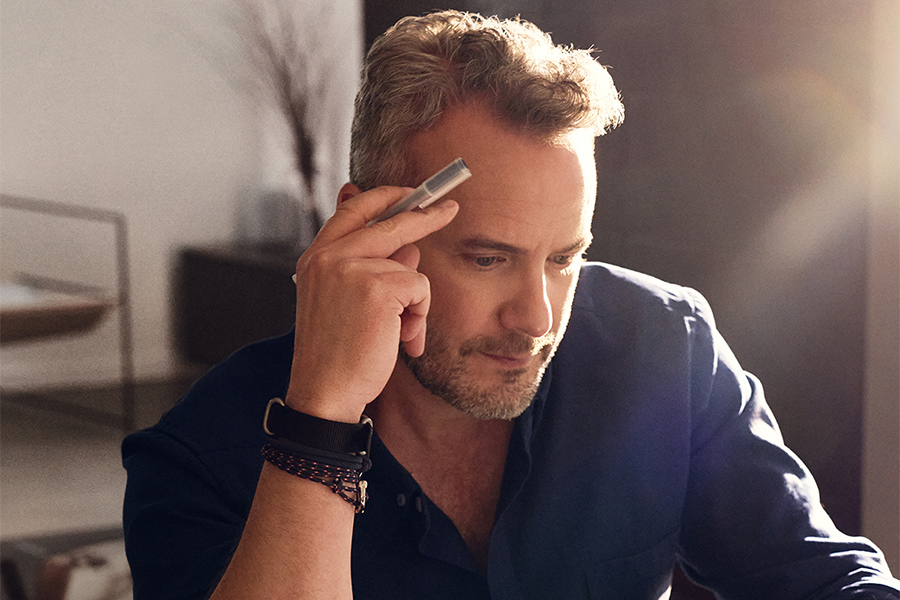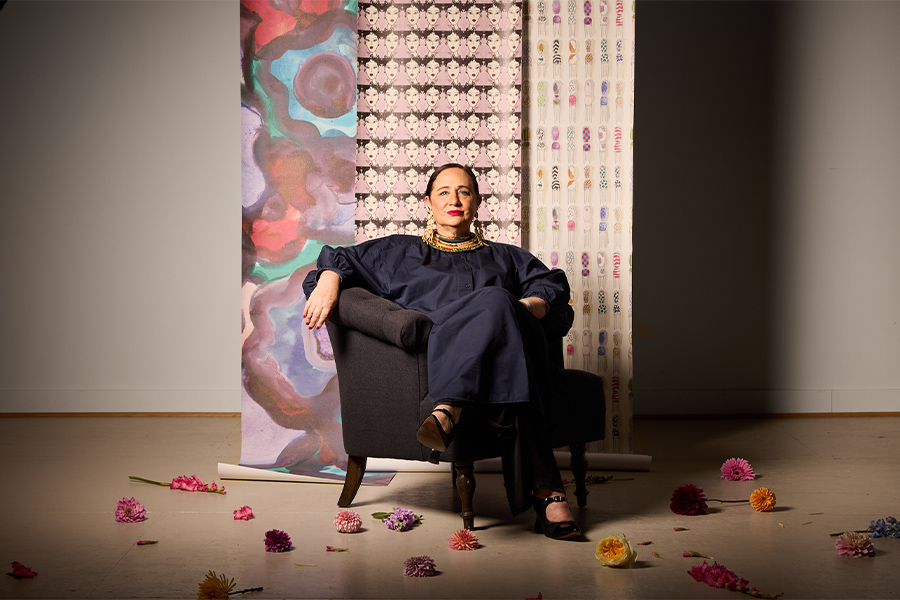Green Qween founders Andrés Rigal and Taylor Bazley may be cannabis rookies, but their dynamic ethos sparks a movement toward a more inclusive marketplace. Launched earlier this year in Los Angeles, the maiden Green Qween dispensary spotlights products from LGBTQ-, BIPOC-, and women-owned brands. Here, the founders discuss their mission, their process, and why they installed an in-store disco ball.
How did you meet?
Andrés Rigal: My background is in LGBTQ nightlife, which I’ve been doing for about 18 years primarily here in Los Angeles. I’ve created a lot of queer nightlife brands around the city. I was working as a creative director for a venue in Santa Monica, and I met Taylor [there].
Why did you want to partner on this project?
Taylor Bazley: When I was working on creating the concept of the cannabis dispensary to leverage my knowledge of local licensing, he was the first person I thought to reach out to in order to create the vision and to build the artistic side.

Located in Downtown Los Angeles, Green Qween boasts a whimsical design by SevenPoint Interiors
How is Green Qween different from other dispensaries?
AR: In nightlife, I learned how important safe spaces are, especially for queer people, so I knew we wanted to create a safe space within cannabis. We wanted Green Qween to be a brand that uses cannabis as a vehicle to empower and change the queer community. There’s little to no representation of queer people in cannabis.
TB: The first dispensaries and the birth of the legal cannabis movement in California, which was a template for the whole country, was in the LGBT community. The first dispensary was in the Castro [in San Francisco] in the 1980s and treated folks who were suffering from HIV and AIDS. For us, it was about carrying on that legacy. We give back 10 percent of our profits to help construct the DTLA PROUD community center.
How do you promote the equity brands you sell?
TB: For some of those LGBT brands on the floor, we’re their only contract in LA or one of only two or three contracts. They’re nascent, but we wanted to highlight and celebrate them. We have a mailer campaign. We’re sending out coupons related to them, and we’re giving them the opportunity to be discovered by consumers and succeed on their own merits.
What did you want to create for the design, working with SevenPoint Interiors?
AR: The interior lends itself to Art Deco, with a bit of Postmodern and Memphis design influences. We also have a gigantic disco ball that we installed into the wall, which lends itself to queer history and my background in nightlife. We wanted the space to be a representation of the diversity, the extravagance, and the uniqueness of queer people.
This is part of an ongoing interview series curated by the Hospitality Diversity Action Council (HDAC).


